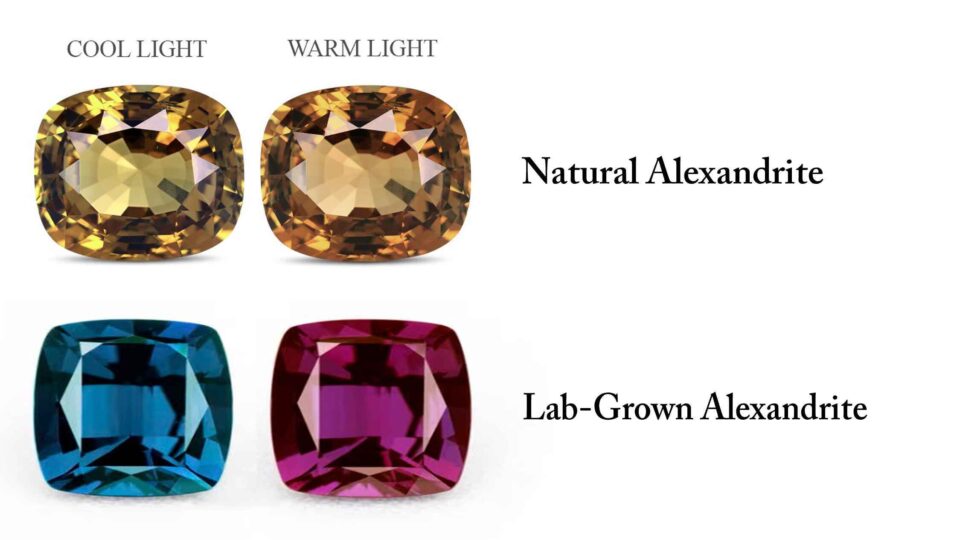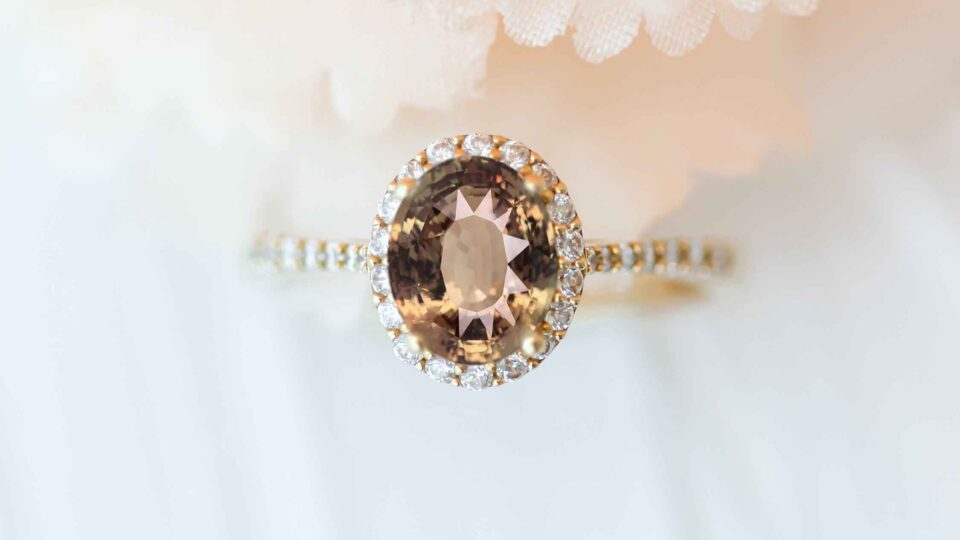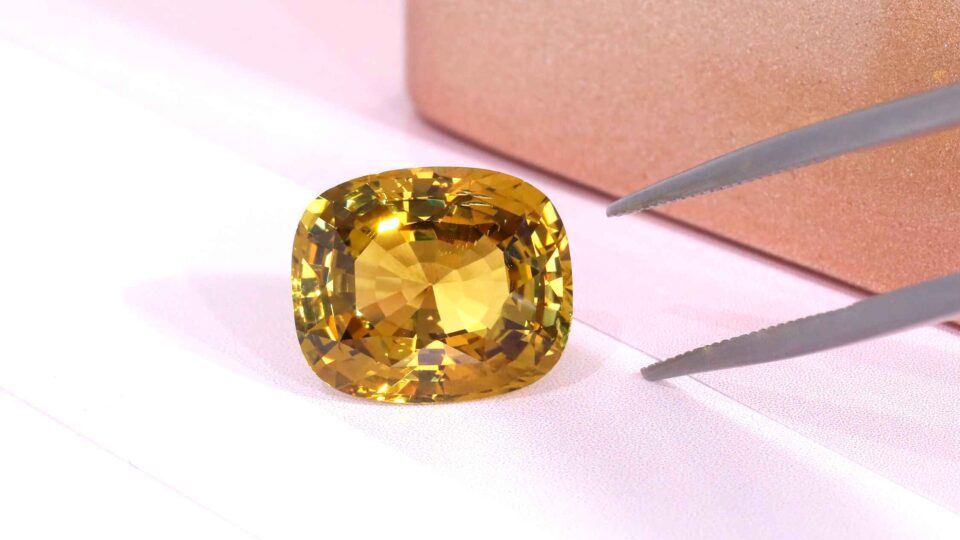If you talk about heirloom rings, the rarest gemstones would be your priority. What about alexandrite stone and jewelry made out of it? Yes, these rare stones are great options. They are precious and stun the onlookers with their unusual color-changing properties. As the popularity of these gems increases with time, their stimulants also grab the marketplace. Buying a genuine alex can be a piece of cake for those on a budget. However, lab-grown gemstones can be a good choice for individuals looking for budget-friendly options. This buying guide refers to the different features of both these stones and how their value differs.
What is Alexandrite?
It is a precious gemstone that comes from the mineral chrysoberyl. Their color-changing properties determine the rarity of these gems. It shows two hues in different light conditions: green in the day and red at night. The story behind its discovery is magnificent. This rare gem was first found in 1830 near the Ural Mountains in Russia. It is believed that it was discovered on the birthday of Russian Prince Czar Alexander II, and thus, to honor his name, the stone was named Alexandrite. These rare gems were earlier considered emeralds due to their resemblance to the green color visible during daylight. Later, they were discovered as a rare variety of chrysoberyl minerals. The dramatic color shift from green to red gave it the phrase “emerald by day and ruby by night.”
What are Lab-Created Alexandrites?
These synthetic gemstones are similar to their original counterparts. They are grown in the same chemical environment and conditions as the real gems, the only difference being that they are created in a testing room. Since the genuine and rare chrysoberyl supply was limited, the formation of these gems took place. Ethical concerns are other reasons why created gems are being made. This is because extensive mining has resulted in environmental damage. The formation of these synthetic stones takes place in the laboratory. Thus, these created stones are a sustainable option for real gemstones.
Natural vs Lab-Grown Alexandrite Rings

Rings have always been considered a minimalistic part of jewelry. But they do symbolize a lot. Wedding or engagement rings signify love, devotion, and commitment to each other, whereas cocktail rings depict fashion and style. Birthstone rings are an exclusive addition to this, as they are associated with an individual’s birth month. Since each gemstone ring has a special meaning, it means a lot to the wearer. So, for rare gemstones like the color-changing chrysoberyls, what factors should one consider when choosing the perfect fit for oneself? Let’s compare both synthetic and natural gems.
- Formation and Rarity
Natural Alexandrite is formed in metamorphic rocks under high temperatures and pressures. It is a chrysoberyl mineral composed of beryllium, aluminum, and oxygen with the chemical formula Al2BeO4. Their occurrence is natural, whereas man-made Alexandrites are formed in a laboratory with similar environmental conditions as the former ones. The original chrysoberyl is rare because it shows a shift from green to red. Since this mechanism is only found in selected gemstone species, it is considered rare. Lab-created Alexandrite also changes its color. This color-changing effect, or the “alexandrite effect,” is induced in these stones through a process called the Czochralski method. Thus, if you opt for budget-friendly synthetic gems but are unsure whether they feature the rare effect, relax! So, choosing a lab-grown Alex stone ring is not a bad idea.
- Characteristic and Quality
Lab-grown alex rings are equally durable as their real counterparts, which rank 8.5 on the Mohs scale of hardness. The natural gems’ refractive index is high for both natural and created ones. Top quality high carat weight alex stones are priced higher. Natural gems have inclusions, indicating they are genuine and obtained from the earth’s surface. Artificial stones also mimic inclusions, and a professional gemologist can only differentiate between the two. However, transparent synthetic gems are popular. If you are looking for real alexandrite stone engagement rings without inclusions, you must pay a higher price. This is because inclusion-free stones are rare.
- Meaning and Benefits
Alexandrite’s meaning refers to good fortune, intellect, and prosperity. Rings made out of these gems are perfect for engagement as they symbolize love and harmony in a relationship. They are birthstones for June month and lucky gems for Gemini and Aries. The color shift process of this stone signifies that change is constant, and one should be able to balance it. This June birthstone is a spiritual gem that activates the third eye, heart, and throat chakra. Thus, the wearer benefits from emotional balance and good communication and amplifies intuition. Lab-created alexander rings are an affordable choice to express your love. But, they do not contain any spiritual energy.
Choosing the Right Alexandrite Ring

One needs to consider various factors when choosing this rare gemstone ring. Are you looking for an adornment for a special occasion? Nothing can replace original stones, precious gifts from the earth, but the creation of alex rings has become famous with time due to their affordability and accessibility. They reflect the same properties as genuine gems and also go well with other stones. Precious Alexandrite is an excellent choice if you seek high-end jewelry for future investment. On the contrary, man made stones are a stunning alternative if you are looking for everyday accessories.
Where to Buy Alexandrite Rings
If you choose rare gemstones for your ornament, choose reputed dealers only. Navratan is one of India’s best online gem stores, providing authentic, genuine stones and jewelry. Ensure that you ask for a certificate for whatever stone you pick. For online purchases, you must go through the high-quality images, detailed descriptions, and certificates. Other than this, checking return policies, customer reviews, and price comparison is another factor that needs to be considered. The same holds for those created by man.

